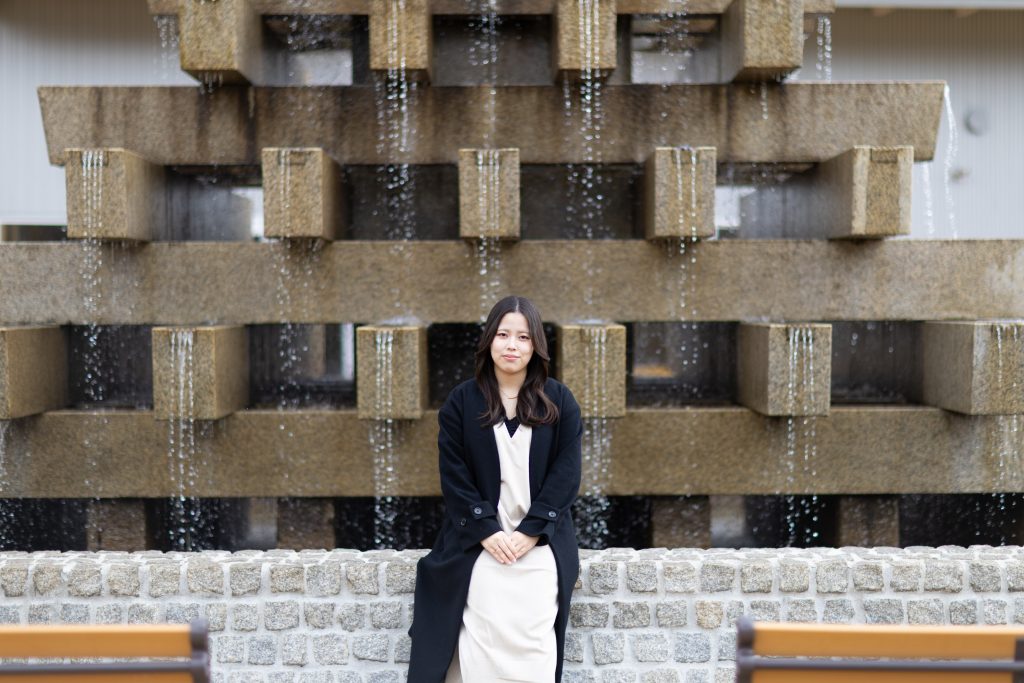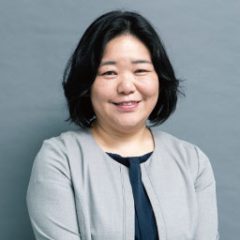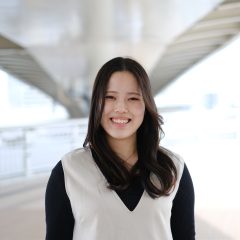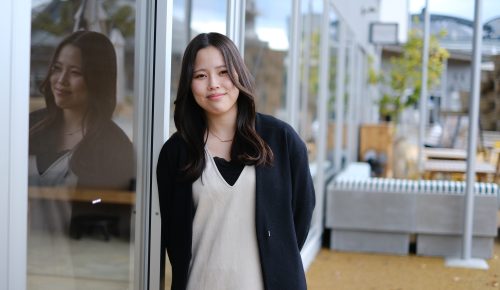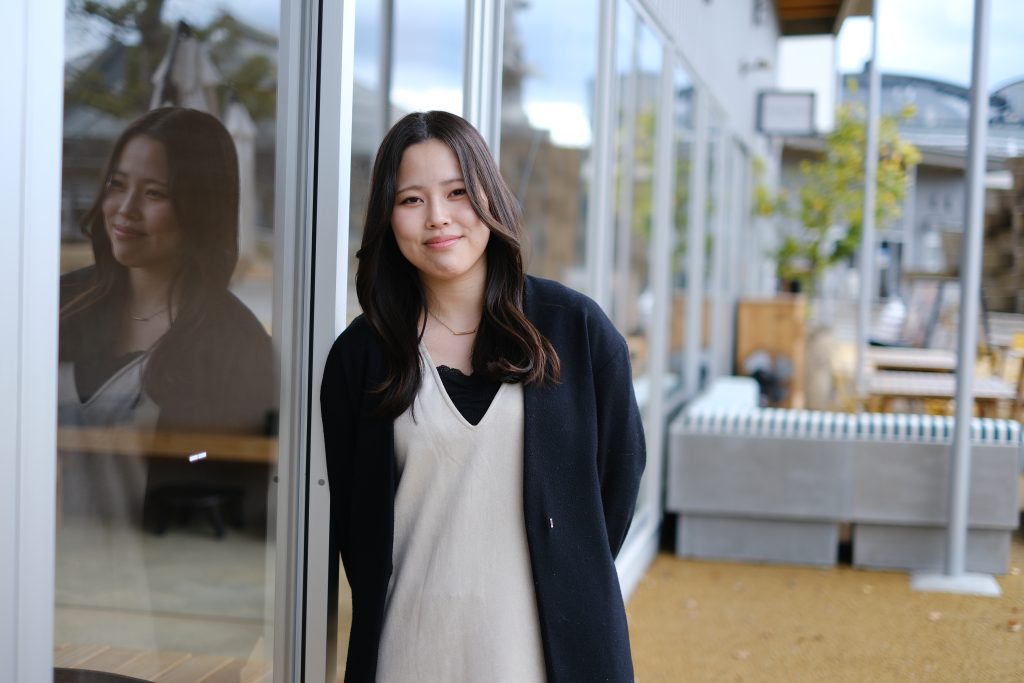
Every person deserves to be respected for who they are, in all their diversity. Yet many people, because of their identity or background, experience discrimination or unequal treatment, leading to feelings of alienation. It is increasingly acknowledged that societies can be especially unwelcoming for sexual minorities. What, then, is truly needed for them to feel safe and supported?
Establishing Peer Support Group from Personal Experience
In 2022, Hinako MITANI interned at ESSOR Hiroshima, a public facility run by the Hiroshima prefectural foundation for gender equality and diversity. “As a sexual minority myself, I used to struggle with anxiety and loneliness,” says MITANI. “I was already aware of these issues, so I was interested in ESSOR Hiroshima’s missions and activities.”
Her internship deepened her connection with the staff members, and she learned about an opportunity to utilize the space for youth-led events. Motivated by her own experiences, MITANI launched a peer support project. “When I was 18, I attended an LGBTQ+ gathering for the first time. That one experience significantly eased my anxiety and loneliness. It made me realize how important it is for LGBTQ+ individuals to have a safe space.”
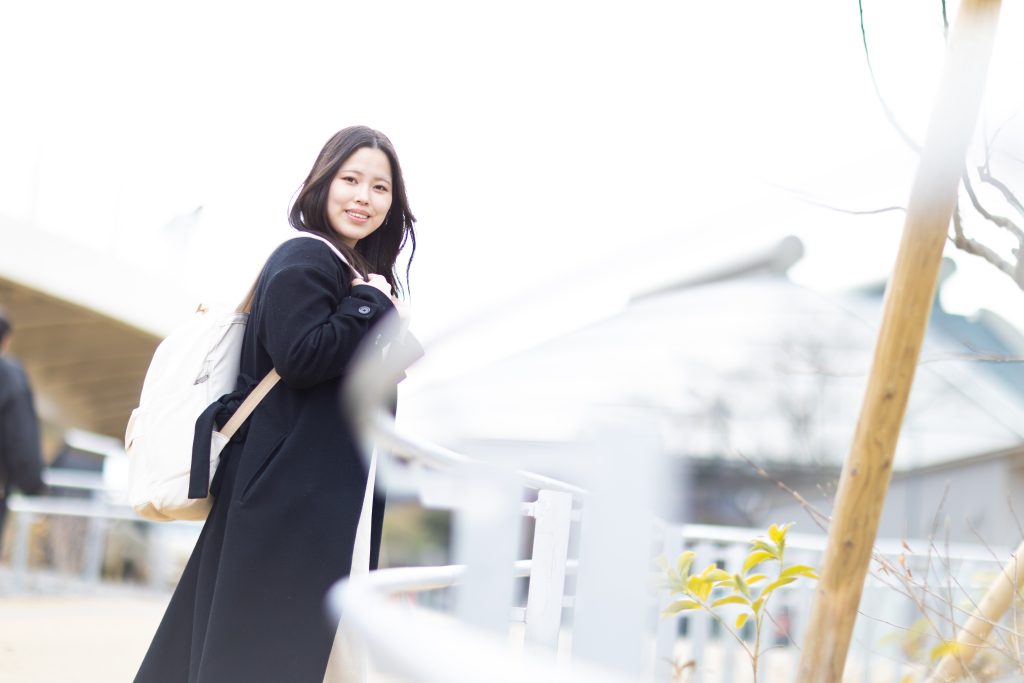

Focusing on Youth Who Need a Place to Belong
MITANI’s project aims to fill a gap in Hiroshima City:
“There is no peer support space specifically designed for LGBTQ+ youth. I wanted to create a space where young LGBTQ+ individuals can simply be themselves and start to like who they are.”
This led to the launch of “Nijiiro Oshaberi-kai” (Rainbow Chat Sessions)—a casual space for gathering and conversation. Although some events for LGBTQ+ individuals exist in Hiroshima, most cater to children (with their parents) or adults over 35. There had been no space for youth.
Designing an Accessible and Safe Space
Including three initial trial sessions before the project’s official launch, Nijiiro Oshaberi-kai has been held seven times in total. “I handled most of the planning myself, but I worked closely with Associate Professor SEKO Motoko and staff from ESSOR Hiroshima to decide on details, such as determining target age groups, selecting venues, and discussing outreach strategies,” she explains.
From July to October 2024, four semi-structured sessions were conducted based on the prototypes. Because of the sensitive nature of the topic, protecting participants’ privacy and safety was a top priority. “We put several measures, for example, making it mandatory to include a phone number on the registration form to prevent prank participants,” she adds.
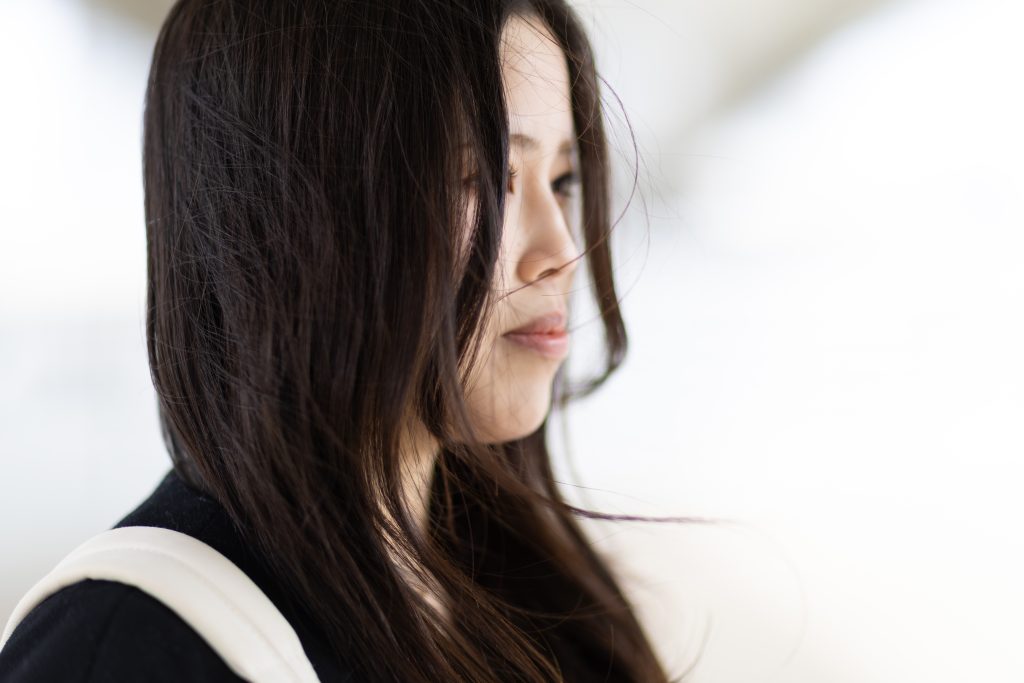
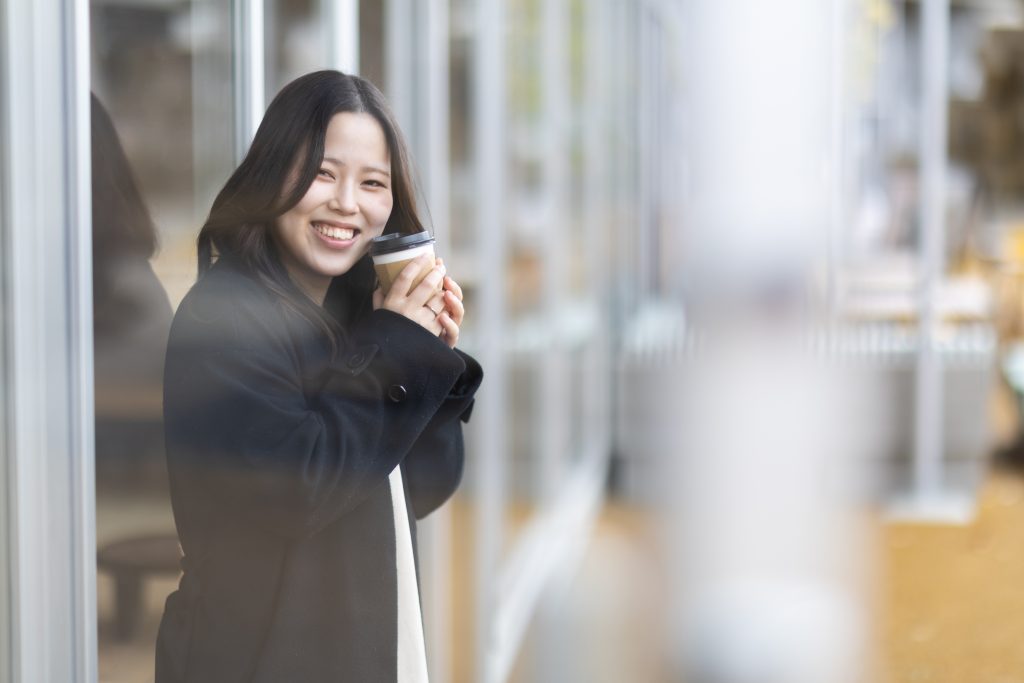
“Even Just Talking About Love Stories Makes a Difference”
Each session was refined based on participant feedback. “I conducted surveys after every event and made improvements. For example, if someone dominated the conversation in one session, we prepared to intervene early in the next session. If fixed groupings restricted conversation, we facilitated seat changes.”
MITANI’s background in Project-Based Learning(PBL) also helped: “At first, I jumped to solutions. But thanks to PBL, I learned to first understand the problem deeply. I realized the real issue wasn’t just self-doubt but the lack of safe spaces where people can feel free to be themselves. You don’t have to love your sexuality—just having a place where you can feel more casual about it makes all the difference.”
Nijiiro Oshaberi-kai is just one means to that end. “Even if all I do is enjoy myself openly, it might inspire someone else.”
Fueled by Joy, Committed to Sharing Hope
The participants’ feedback was overwhelmingly positive. “The data shows that simply connecting with other LGBTQ+ youth helped many ease their burdens or anxieties.”
As a tangible outcome, MITANI created a planning manual to allow others to host similar gatherings. One participant actually used it successfully to run their own session. The project also led to an official partnership with Kokoiro Hiroshima, a non-profit organization that had supported the initiative from the planning stage.
“Thanks to our partnership with ESSOR Hiroshima, securing venues and promoting events has become much easier, which helps ensure the sustainability of the sessions,” she reflects. “Just like I once needed a place to feel safe and joyful, I hope more people find comfort and community through these events. I want to keep creating opportunities to share that feeling.”
(March 2025)
